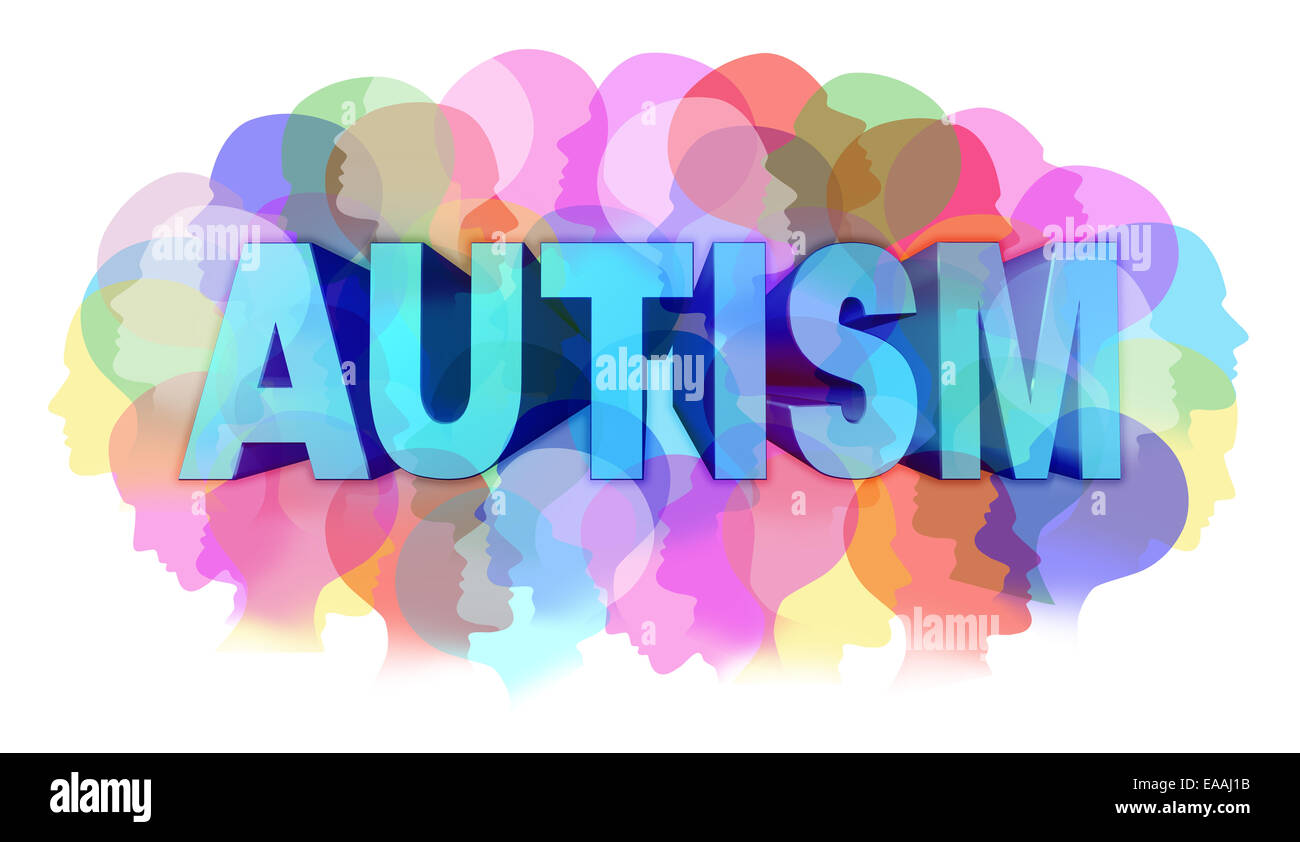Could You Have Autism Or ADHD? Common Symptoms And Diagnosis In Britain

Table of Contents
Understanding Autism Spectrum Disorder (ASD) in the UK
Autism Spectrum Disorder is a lifelong neurodevelopmental condition affecting how individuals communicate and interact with the world. Symptoms vary widely, making diagnosis crucial for tailored support.
Common Symptoms of Autism in Children and Adults:
Autism presents differently in each individual, but common symptoms include:
- Social Communication Challenges: Difficulty understanding social cues, initiating or maintaining conversations, engaging in reciprocal interactions, and interpreting nonverbal communication (body language, facial expressions).
- Repetitive Behaviours and Restricted Interests: This can manifest as repetitive movements (hand flapping, rocking), insistence on routines, strong attachments to specific objects, intense focus on narrow interests, and difficulty with transitions.
- Sensory Sensitivities: Over- or under-sensitivity to sensory input such as light, sound, touch, taste, or smell. This might involve a strong aversion to certain textures or sounds, or a heightened enjoyment of sensory experiences that others find overwhelming.
- Challenges with Flexibility and Routine Changes: Individuals with autism often thrive on routine and predictability. Unexpected changes can cause significant distress and anxiety.
- Differences in Communication Styles: This may include echolalia (repeating words or phrases), delayed language development, difficulty understanding abstract concepts, or using unusual language patterns.
Autism Diagnosis in Britain:
The diagnostic process for autism in Britain typically involves a multidisciplinary assessment. This usually includes:
- Clinical Interviews: Discussions with the individual and their family to gather detailed information about their history and current challenges.
- Observations: Observing the individual's behaviour in different settings to assess their social interactions, communication skills, and play or other activities.
- Standardized Assessments: Using validated questionnaires and tests to evaluate cognitive abilities, social skills, and adaptive behaviour.
Waiting times for NHS autism assessments can be lengthy. Early intervention is vital for optimal outcomes. The National Autistic Society (NAS) provides invaluable support and information throughout the diagnostic process and beyond.
Seeking Support for Autism in the UK:
Once diagnosed, various resources are available in the UK to support individuals with autism:
- Therapy: Speech and language therapy, occupational therapy, and behavioural therapy can help address specific challenges.
- Support Groups: Organizations like the NAS offer support groups and social events for individuals with autism and their families.
- Educational Support: Schools and colleges provide tailored support, including Individual Education Plans (IEPs), to help autistic students succeed.
Understanding Attention Deficit Hyperactivity Disorder (ADHD) in the UK
ADHD is another neurodevelopmental condition characterised by inattention, hyperactivity, and impulsivity. These symptoms significantly impact an individual's ability to focus, organise, and control their behaviour.
Common Symptoms of ADHD in Children and Adults:
Symptoms of ADHD can vary across individuals, but generally include:
- Inattention: Difficulty sustaining attention, easily distracted, forgetful, poor organisation, and trouble following instructions.
- Hyperactivity: Excessive fidgeting, restlessness, difficulty sitting still, excessive talking, and interrupting others.
- Impulsivity: Acting without thinking, difficulty waiting their turn, interrupting conversations, and making rash decisions.
For a diagnosis, these symptoms must be present across multiple settings (home, school, work) and significantly impact daily functioning.
ADHD Diagnosis in Britain:
Similar to autism, ADHD diagnosis in Britain involves a comprehensive assessment by a healthcare professional, usually a psychiatrist or psychologist. The assessment may include:
- Detailed history: Gathering information about the individual's developmental history, current symptoms, and impact on their life.
- Behavioural rating scales: Questionnaires completed by the individual, parents, teachers, or employers to quantify the severity of symptoms.
- Clinical interviews: Discussions to assess the individual's symptoms and their impact on various aspects of their life.
Access to timely diagnosis can be challenging due to long waiting lists within the NHS.
Seeking Support for ADHD in the UK:
Support for individuals with ADHD in the UK includes:
- Medication Management: Stimulant or non-stimulant medications can help manage symptoms, but this is often only part of a broader treatment plan.
- Therapy: Cognitive Behavioural Therapy (CBT) and other therapeutic approaches can help individuals develop coping strategies and improve their self-management skills.
- Support Groups: Support groups provide a sense of community and shared experience for individuals with ADHD and their families.
- Workplace Accommodations: Reasonable adjustments can be made in the workplace to support individuals with ADHD, such as flexible working arrangements or assistive technology.
Differentiating Autism and ADHD: Overlapping Symptoms
Many symptoms overlap between autism and ADHD, leading to potential diagnostic challenges. For example, difficulties with attention and social interaction are common to both. It’s possible to have both conditions (dual diagnosis). A thorough assessment is crucial to distinguish between them and identify any co-occurring conditions. Other conditions must be ruled out, as symptoms can mimic those of autism or ADHD.
Where to Seek Help and Diagnosis in Britain
Accessing a diagnosis for either Autism or ADHD can be a significant undertaking. Here are some avenues to explore:
- Your GP: Start by talking to your GP. They can provide referrals to specialists and offer initial support.
- NHS Specialist Services: Depending on your location, NHS services offer assessments for both conditions. Be prepared for waiting lists.
- Private Clinics: Private clinics offer faster access to assessment and diagnosis but come at a cost. Research thoroughly before choosing a provider.
- Relevant Charities: Organizations like the National Autistic Society (NAS) and ADHD UK offer information, support, and can often provide guidance on finding appropriate services.
Remember to thoroughly research any clinic or professional before committing to an assessment.
Conclusion
This article explored the common symptoms of Autism and ADHD in Britain and the pathways to diagnosis and support. Understanding these conditions is crucial for early intervention and improving quality of life. Many individuals experience overlapping symptoms, highlighting the need for a comprehensive assessment by a qualified professional. If you suspect you or someone you know might have Autism or ADHD, seeking a professional diagnosis in Britain is the first step towards receiving the right support and improving your quality of life. Don't hesitate to contact your GP or a specialist to discuss your concerns and explore the possibility of an assessment for Autism or ADHD.

Featured Posts
-
 Resident Evil Afterlife Locations A Guide To The Films Settings
May 13, 2025
Resident Evil Afterlife Locations A Guide To The Films Settings
May 13, 2025 -
 Efl Highlights Your Guide To The Best Moments In English Football
May 13, 2025
Efl Highlights Your Guide To The Best Moments In English Football
May 13, 2025 -
 Noida And Ghaziabad Heatwave Warning Advisory For Outdoor Workers
May 13, 2025
Noida And Ghaziabad Heatwave Warning Advisory For Outdoor Workers
May 13, 2025 -
 Finding Luxury Homes Luxury Presences Off Market Property Hub
May 13, 2025
Finding Luxury Homes Luxury Presences Off Market Property Hub
May 13, 2025 -
 House Gops Trump Tax Cut Bill A Comprehensive Overview
May 13, 2025
House Gops Trump Tax Cut Bill A Comprehensive Overview
May 13, 2025
